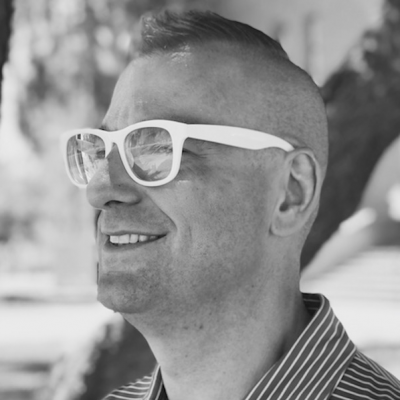Conclusion: The Next Chapter
Thomas A. Murray
When I was growing up in the suburbs of Chicago, my family had relatively modest means. My mother did not work in a paid position (let’s be honest here – parenting is a lot of work!) and I was the youngest of five children. That is a lot of mouths to feed. To get more fresh produce into our diets in a more economical way, my mother planted, tended, and harvested from an enormous garden. Each summer she would have nearly 40 tomato plants, well over 30 broccoli plants, and then rotate through a mix of peppers, eggplant, corn, zucchini, beets, carrots, and more. And, of course, we would help her care for the garden and preserve much of the yield for the winter. We canned tomatoes and pickled beets in mason jars, usually enough to last us through the next April or May, and prepared broccoli to be frozen and stored in the giant chest freezer in the garage. This experience growing up working in a garden is part of my Story of a Lifelong Learner; let me explain.
In that garden, I learned a lot: I learned about patience, the technical difference between fruits and vegetables, and the role of fertilizer. The garden also gave me opportunities to learn from failure, like the time that I tried to be super helpful and harvested broccoli way too early or when I used a pre-emergent weed control in an area where we had just planted seeds (as you might expect, it prevented the desirable seeds from germinating, too). I learned about a plant’s life cycle, how seeds work, and was fascinated when my mother referred to a plant as a “volunteer,” a term used to refer to plants that grow from seeds not planted intentionally. Each year, we’d get a few volunteer tomato plants grown from seeds that had fallen the year before. While not expecting them, my mother would always transplant them with care and nurture them with the rest of the garden.
In my sophomore year of college, I was taking a history course as a part of my general education requirements. This was the first time that I ever enjoyed or was engaged in a history class. The professor not only made history come alive through amazing storytelling, but she also made history relevant to me for the first time by insisting that we not merely memorize facts. Instead, she also taught us to articulate how and why those facts were relevant in their own time and how they helped to shape the world today.
This newly understood relevance of history unexpectedly came to life for me one day as I walked through a gravel parking lot on Loyola’s Lake Shore campus.
The week prior in that history class, we had learned one theory about how humans discovered and developed agriculture. Pre-agricultural humans learned that new plants would grow from the discarded seeds of fruits they had consumed. In other words, they discovered that new fruit plants were growing from their garbage and then discovered that they could take that “garbage” and deposit it intentionally where they wanted the next plant to grow.
Now as it happened, that gravel lot that I was walking through was behind a building where that building’s dumpsters also were. And as my gaze fell across the ground by the dumpster, I saw it: a volunteer tomato plant. A new plant was growing from where a tomato was likely discarded. To this day — and it’s been a while — I still get a thrill thinking back to that experience and the realization I made: this was a modern-day example of the human discovery of agriculture.
That moment was transformational for me for several reasons. First, it was an experience that helped me learn to carefully observe my environment for things that might easily be overlooked. It was also the first time that I can remember that I was able to take something that I had learned in a class and find a real-world way to apply or contextualize that learning. It was a great example of connecting previous knowledge — learning from my mother what a volunteer plant is and what a tomato plant looks like — to current learning: identifying a volunteer plant near a dumpster and relating it to my classroom learning. But most importantly for me was that this experience is what made me realize the role that I had to play in my own learning. It taught me that if I want my learning to be meaningful, applicable, and fun, I have to take ownership of making that meaning, finding application, and creating what makes it fun. I had to become the author of my own story, knowing that a part of that story would also be “volunteers” — unintended paths and passions that sprouted from unsuspected seeds — that, if cared for, would take root and thrive.
This is a strange task: writing a conclusion for a series of essays that are rooted in lifelong learning. So, consider this conclusion an ellipsis rather than a period. It is the conclusion of this reader, but not the conclusion of your story. Since starting in UNIV 101, you’ve been asked to think about, reflect on, and write about the story of your lifelong learning. You’ve been asked to become more intentional in the process of authoring your own story. As you complete this milestone in your academic journey, I hope you are excited about the chapters in your Story of a Lifelong Learner that you will get to author next. Tend to both the seeds you plant and to the volunteers, and it will surely be a compelling story.


